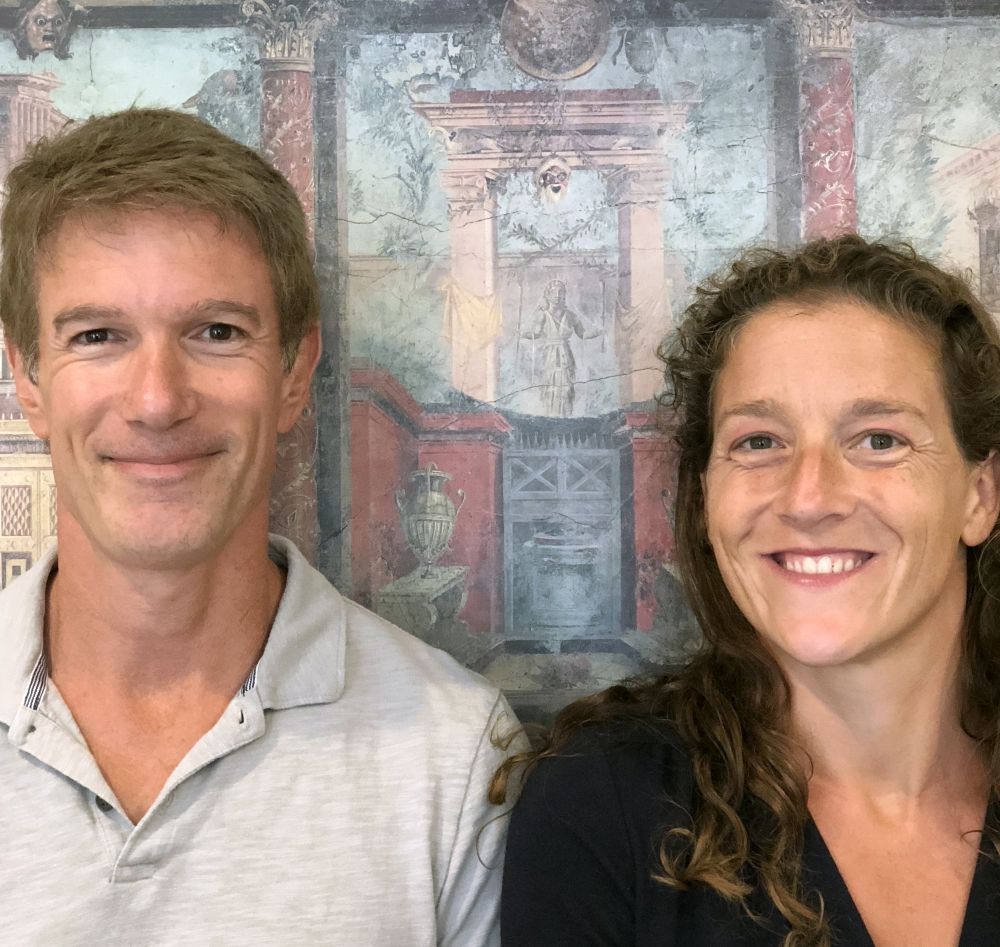
Facts Romana

Imagine exploring the monuments of ancient Rome as a graduate student, excavating at an archaeological site and being tasked with determining if some purportedly ancient artifacts are genuine. If they are, you need to determine whether they should remain at the prestigious Southern California museum where they’re housed or be returned to Italy.
It’s a big job, requiring multiple levels of research and decision-making, with intrigue and false steps dogging you along the way. A little daunting? Maybe, but don’t worry: You’ll never even have to leave home to get it done.
That’s because the mission will be entirely online, an interactive game created by two UC Santa Barbara scholars who want to give undergraduate students a real taste of what it’s like to do deep, hands-on research to solve an intellectual mystery.
Claudia Moser, an associate professor in the university’s Department of History of Art & Architecture, and Christian Thomas, a lecturer in the campus’s Writing Program, are making “Rome: The Game” a reality with the help of a $94,000 grant from UC Santa Barbara’s Innovative Learning Technology Initiative.
The scholars, both of whom have spent extensive time in Rome, see the game as a way to introduce undergraduates, especially first-generation students and those with limited exposure to upper-level academia, to the rigors and excitement of graduate school research.
“I’m always trying to think of ways to engage more students and get more students excited about studying the ancient world,” said Moser, a Roman archaeologist.
“I think we’re both excited about the idea of using technology and interactive storytelling to really immerse students to get an experience in a character that goes to explore Rome as a grad student,” said Thomas, who is also affiliate faculty at UCSB’s Center for Digital Games Research.
The game, which they are developing themselves and hope to offer as a course in 2021, will indeed place students in a game set in a virtual version of Rome, where they excavate, visit museums, create their own virtual reality tours and identify artifacts for a major museum. Then, Moser said, they’ll “determine whether or not they’re fake or real or whether or not they’re stolen, and whether or not they should be sent back to Rome or should stay in California.”
To do that, the students each week will complete a mini research project in different game-based and written formats, depending on what they’re experiencing. A digital archaeological dig, for example, means their research and writing assignment will be in the form of an excavation journal, Moser said.
“And so they’ll have to model their writings for that week describing what they found, how they might put some objects back together and what they think the context of these objects were,” she said. “Each week they’ll practice a different form of writing and a form of research, and then their final research paper will be an actual report back to the museum with their determination of the objects’ origin and what they think should be done with them,” Thomas added.
Along the way, Thomas said, students will be caught up in the shadowy world of tomb robbers and the Mafia-run black market for antiquities and art works — not to mention a chase through the catacombs below Rome.
To lend the game a realistic look, Moser and Thomas are in talks with potential partner Ubisoft, maker of the video game “Assassin’s Creed: Brotherhood,” which is set in Renaissance Rome.
Because Moser and Thomas are developing “Rome: The Game” with interactive videos and with Twine, a software tool that allows creators to build choose-your-own-adventure games, students will need to refer to readings, modules, images, maps and lecture videos (all which will be embedded in the game) to make choices about how to proceed.
“Sometimes there’ll be negative consequences if they don’t choose correctly,” Thomas said. “If they misunderstood material or if they just haven’t done a reading, say, there’ll be consequences for that. The game will also give them feedback and give them other tries.”
Online university courses are old hat, but Moser and Thomas said they hope their game will break new ground for interactivity.
“We’re so thankful for the incredibly generous support of the Innovative Learning Technology Initiative for giving us this opportunity to create this immersive, experiential online class, and for the continuous help from Instructional Development,” Thomas said.
Moser agreed, adding, “We’re really excited about this new endeavor, experiment — whatever you want to call it. Both the Department of History of Art & Architecture and the Writing Program have been extraordinarily supportive and enthusiastic about this project — we absolutely couldn’t do it without their help.”



